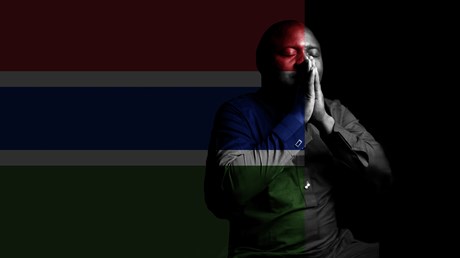After generations of avoiding politics, believers come together to work and pray for the nation’s future.

For most Gambians, the conflict over the new constitution started in 2017, when President Yahya Jammeh was forced from power and the new president promised reform. For others who take a long view, the struggle started in 1994, when Jammeh came to power in a coup, started rewriting the constitution, and revised it regularly to suit his political purposes.
But for Begay Jabang, it started with a women’s prayer meeting in Essex, England, in the summer of 2016. She felt God say to her: “Stop praying for yourselves, and start praying for Gambia.”
In response, she founded Intercessors Gambia and launched a 31-day campaign to pray and fast for her native country. Then, when Jabang flew to the Gambia to join in the national day of thanksgiving in March 2017 and celebrate the end of Jammeh’s presidency, she discovered other Christians had also been inspired to pray. Many small prayer groups were urgently interceding for Gambia in its time of turmoil and asking God to intervene in the nation’s politics.
This is new for Christians in Gambia. They are a minority among the 2 million people in the English-speaking West African nation. Nine out of 10 Gambians are Muslims, and a mere 5 percent are Christians. Many of the Christians have emigrated from the country, succeeding professionally in majority-Christian countries like the United States and Great Britain. Abroad or at home, they generally don’t get involved with politics.
There are historic exceptions, including Edward Francis Small, who launched an independence movement in the 1920s with his Aku tribe of freed former slaves. And Gambian Christians served in the colonial and early postcolonial governments. But recent generations of Christians have ...
from Christianity Today Magazine
via


.gif)

.gif)
.gif)
